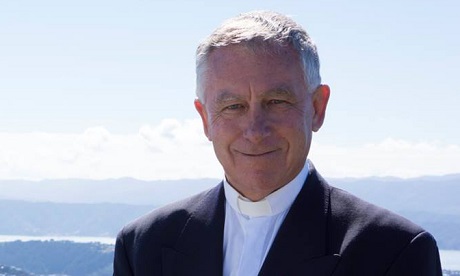The NZ Catholic Bishops’ Conference says the views of all New Zealand Catholics will be sought during an expanded Synod of Bishops’ process announced by the pope.
“Pope Francis has frequently called for the bishops, priests and people to walk together in a common mission of the Church,” says Conference president Cardinal John Dew.
“He believes it is imperative to listen to the People of God, which means going to local churches to hear what they say.”
Francis wants all Catholic dioceses to consult with parishioners from 17 October to get local-level views on the topic for the next synod, entitled a “Synodal Church: Communion, Participation and Mission”.
“The Holy Father wants to hear the voices of all the baptised,” Dew says.
People contacted by CathNews were generally pleased the New Zealand bishops were so quick off the mark and, at an early stage, outlined how the New Zealand Church will participate.
Some had heard of the Synod but were unaware of the October 17 date.
Reading the document though some felt sidelined by the process and hope there might be room for a significant change.
Most of these people consider they are no longer regular parishioners and wonder how limiting the process to going to parishes and consulting parishioners will work.
Jerome De Rosario is a 40-year-old Wellington professional. A “retired catholic”, he thinks the Church needs a different strategy and fresh ideas and hopes the Synod might accomplish this.
However, he expressed surprise the Church did not factor in what it already knows, that most Catholics don’t belong to parishes and do not go to Mass.
Alex Jordan, a university student from Massey, Auckland, also picks up on the parish emphasis.
“The voice of the bulk of baptised Catholics won’t be heard because they don’t belong to the outdated parish structure, he said.
“At most, they’re gathering 5% of the baptised.
“The data will be skewed from the outset”, he said.
“If this is worth doing it’s worth doing well. I hope the Church gets good advice.”
Non-parishioners also need to be considered says Richard McKenna, a 30 something manager in Wellington.
“By focussing on parishes many people who are still fringe Catholics but not regular parishioners, and may feel excluded. This statement seems to confirm our exclusion”.
He hopes it is not the ‘last word’ and the criteria and methodology will also consider non-parishioners may wish to contribute and have valuable ideas.
“I much prefer the Vatican’s focus, consulting with ‘The People of God'”, he said.
However, Kathleen Field, the Parish Council chair at Holy Spirit Cathedral in Palmerston North, thinks that parishes are an obvious place to start.
“The people are involved”, she said. “It’s a starting point”.
On a pragmatic note, she is looking forward to seeing the methodology for collecting the data and how it might be redacted.
“The wording of the questions will be important.
“If the questions are too ethereal, people won’t engage,” she said.
Field is impressed by the established timeline and is keen to learn more about the process when it is available.
In terms of the process, Dew says each bishop will appoint representatives to lead the consultations of all New Zealand Catholics in their dioceses, before the bishop’s conference meets early next year.
After that, they will prepare a report for the Federation of Catholic Bishops Conferences of Oceania.
That regional body and others like it around the world will draft documents that will go to the Synod office in Rome to help prepare the assembly’s working document.
The bishops will then take these views to the synod in Rome in 2023.
Dew says hard details of the consultation – including the matters to be discussed during it – will be promulgated as soon as they are announced from Rome.
Source
Additional reading
News category: New Zealand.




